St. Paul Foot Traffic
This shows the citywide foot traffic in St. Paul for the last few years.
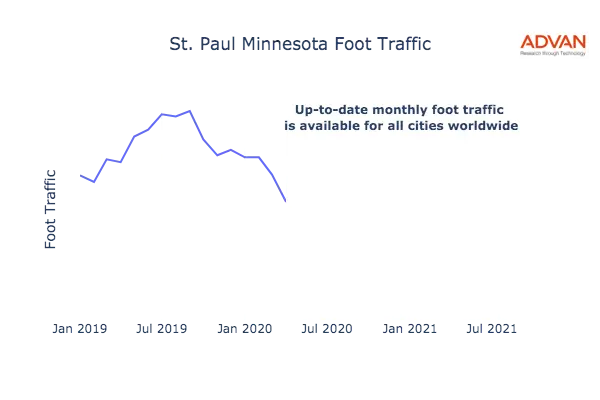
Up-to-date monthly foot traffic is available for all cities worldwide.
St. Paul Work From Home Trend
This chart shows the number of people that are working from home, using mobility data to determine their home and work location. The trend in most places has been that more people are working from home during the pandemic.
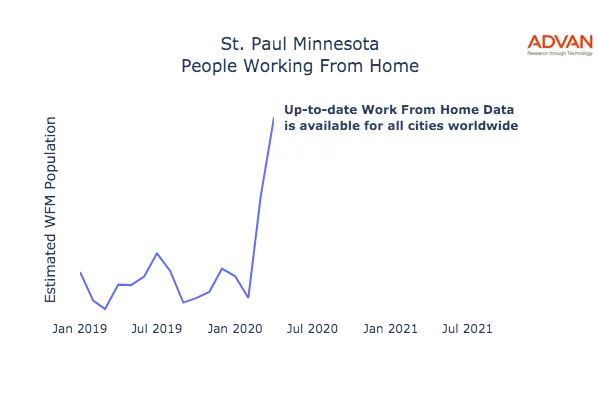
Up-to-date Work From Home Data is available for all cities worldwide.
The charts below graph the inbound, outbound and net migration to the city of St. Paul Minnesota for each year of
data available. Data displayed on the charts is annually aggregated; the REPerspectives product
allows analysis of mobility trends with monthly granularity by State, Zip, County and Census Block Group.
Additional reports
are available for the city residents, employees and tourists.
St. Paul Minnesota Migration In
The map below shows the migration into St. Paul by Census Block Group (CBG).
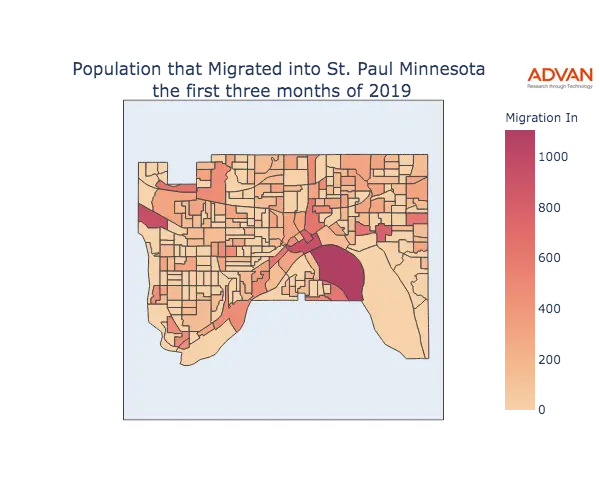
Up-to-date Migration is available for all cities worldwide
St. Paul Minnesota Net Migration
St. Paul saw a net positive (inbound) resident count flow. There were -665 residents moved out of the state.
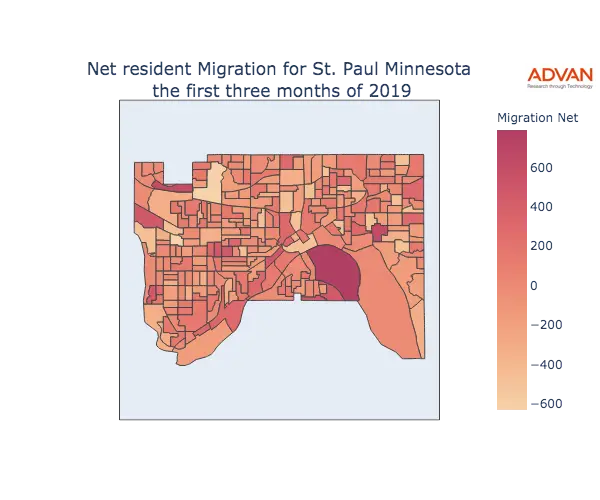
St. Paul Minnesota Migration Out
People migrating out from St. Paul color coded by Census Block Group (CBG).
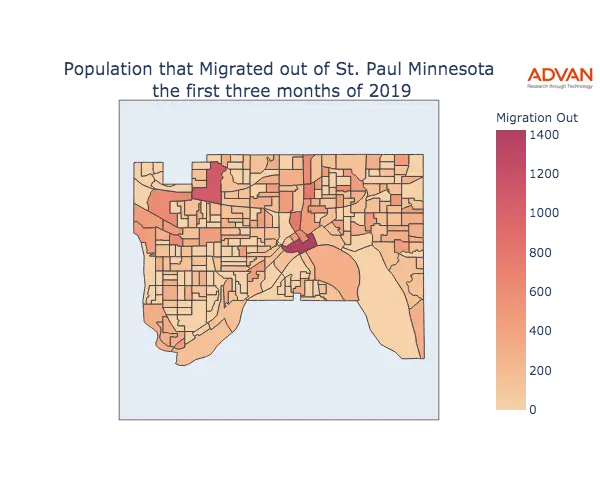
St. Paul Minnesota Residential Migration Counts
This chart shows the number of residents that moved to St. Paul.
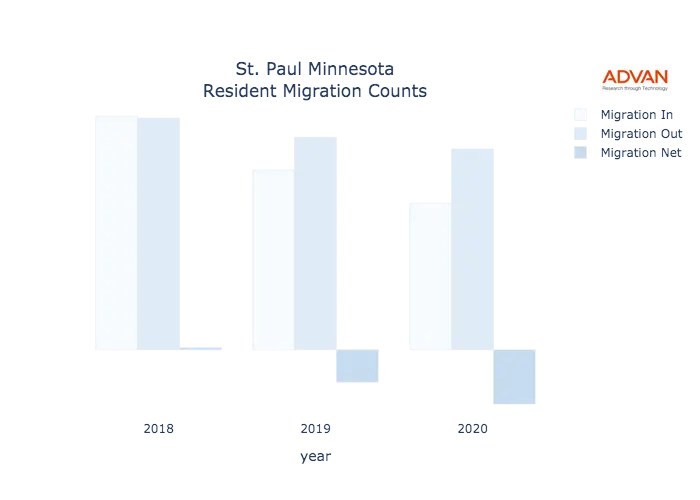
States migrated to and from
The state that most migrants moved from (origin state, excluding Minnesota itself) to St. Paul Minnesota was Wisconsin. The state that most migrants moved out (destination state, excluding Minnesota itself) from St. Paul Minnesota was Wisconsin.
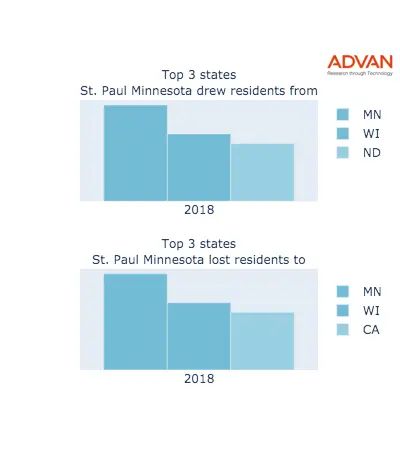
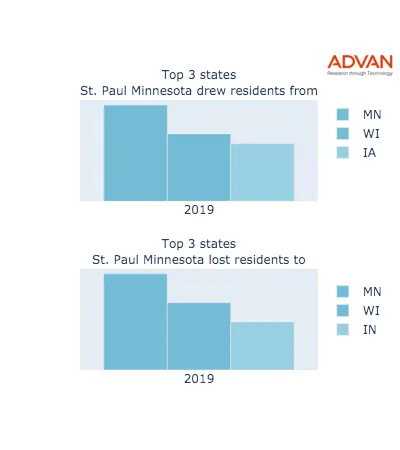
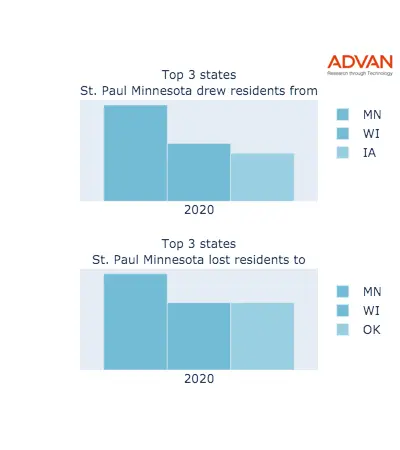
ADVAN measures the inbound, outbound and net migration to the city of St. Paul Minnesota for the years 2015, 2016, 2017, 2018, 2019, 2020, 2021, 2022 and 2023. Data displayed on the charts above are annually aggregated but using our product REPerspectives, it can be analyzed with monthly granularity by State, Zip, County and Census Block Group. Additional reports are available for the city residents, employees and tourists.

